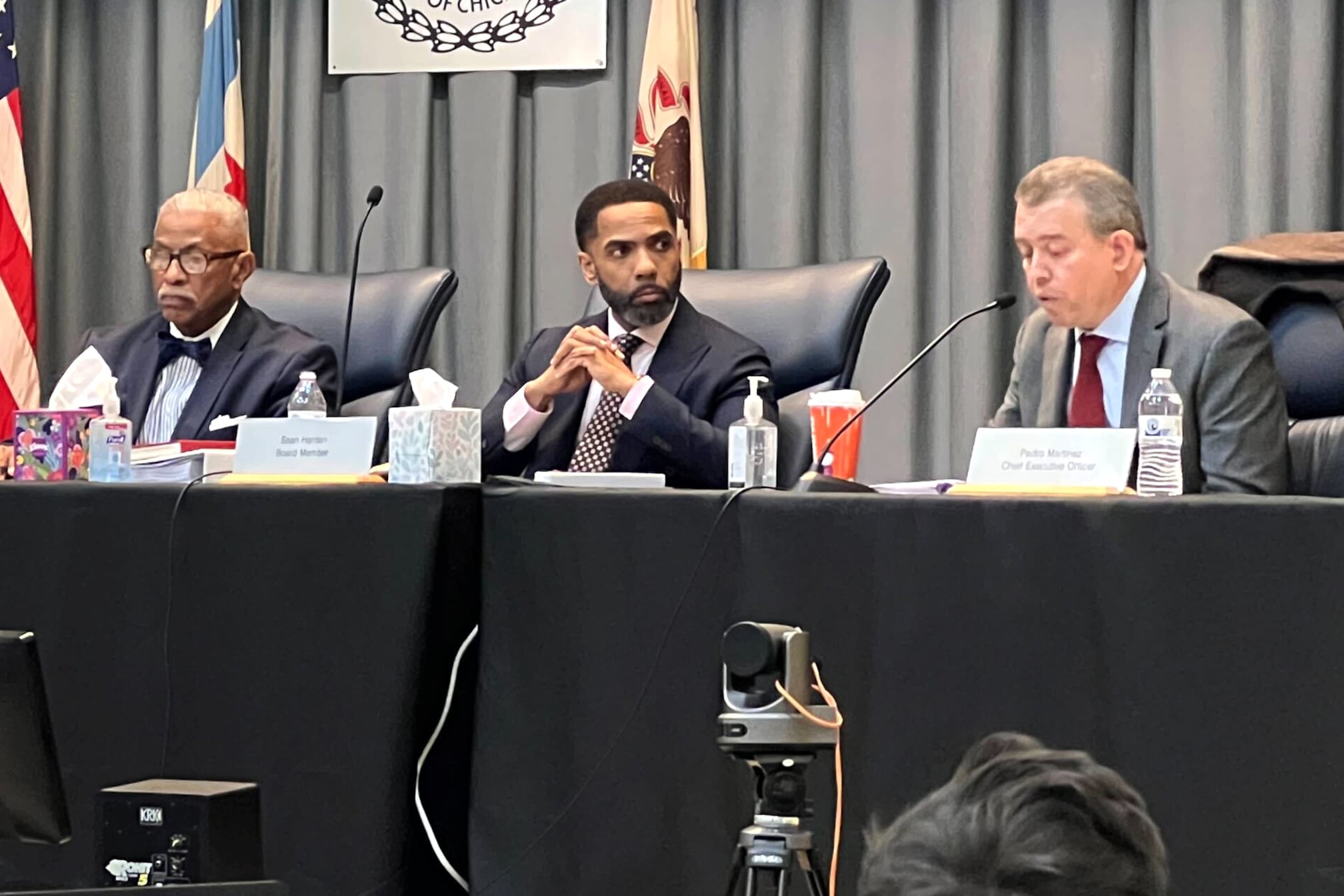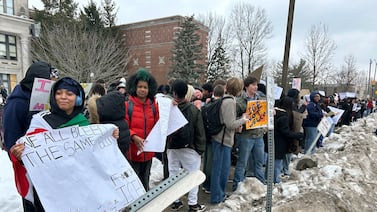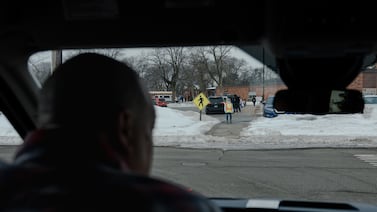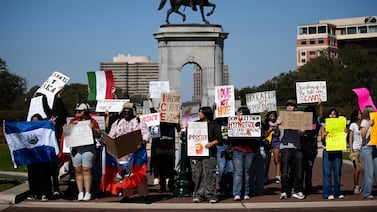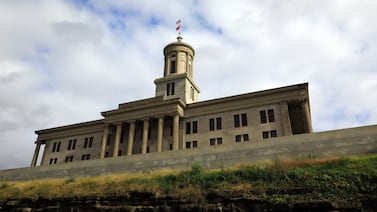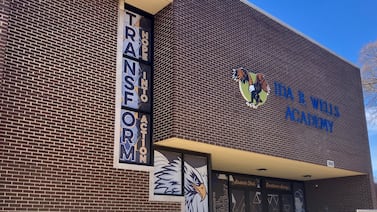Sign up for Chalkbeat Chicago’s free daily newsletter to keep up with the latest news on Chicago Public Schools.
Chicago school board President Sean Harden laid out a case Wednesday for borrowing as “a viable option” for closing the district’s $734 million budget deficit. But he said it must be paired with long-term solutions to solve CPS’s larger financial crisis.
“The centerpiece is children and education, and if the tool that we have to protect that is borrowing, then that’s the tool that we’ll use,” Harden said in an unrelated interview with Chalkbeat. “But we’re also saying: ‘Give us different tools, and then we will use that.’”
The district must pass a balanced budget within 60 days of July 1, when the new fiscal year started. CPS hosted a series of public budget meetings last week, and is expected to present a budget update to the board this week. District leaders have said they plan to present a budget proposal to CPS next month, with a board vote expected at its Aug. 28 meeting.
Harden is one of 11 people — the majority of the school board — appointed by the mayor. Harden can only vote to break ties.
Former CPS CEO Pedro Martinez resisted short-term borrowing last year when City Hall floated it as a way to reimburse the city for pension costs and cover new labor contracts. That resistance led, in part, to Martinez’s firing and the mass resignation of Mayor Brandon Johnson’s first appointed school board.
But Harden said borrowing could be the only pathway to avoid “draconian cuts” to schools and said he doesn’t feel the public is connecting the dots between budget cuts and how they could impact students in schools. He made similar comments to WBEZ on Wednesday.
“We’re talking about significantly impacting educational experience,” Harden said, arguing that cuts could hurt the progress made by CPS students in the wake of significant academic declines during the COVID-19 shutdowns.
But borrowing shouldn’t happen in “isolation,” Harden said. That means looking for money down the road that could bring in additional sustainable revenue for the district to solve its long-term financial problems. That could include more “efficiencies” in CPS’s budget, examining declining enrollment and underutilization of buildings, pushing the state for more revenue, providing additional tax levying authority for CPS, and looking at pension obligations.
Harden also pointed to future revenue expected from expiring Tax Increment Financing, or TIF, districts, which represent a pool of city tax dollars meant to spur economic development.
Roughly half of the property tax revenue tied up in those districts would go to CPS once they expire — a point City Hall officials have previously pointed out when making the case for CPS to borrow money. By the end of 2025, CPS is expected to receive $54 million in additional property tax revenue from expiring TIF districts and another $117 million by the end of 2026 with amounts growing beyond that, according to data published by Cook County.
“The goal is to have this be a short-term strategy connected to structural change,” Harden said.
Still, attracting lenders could be difficult for CPS. The district has a junk bond rating status, which is similar to having a bad credit score. Additionally, its financial difficulties and challenges to find more revenue are well-publicized.
Any short-term borrowing the district does now is more likely to have high interest rates, which could mean costly debt payments in the coming years — potentially impacting classrooms in the future as revenue is diverted to pay off debt. Asked if it’s worth the risk of incurring high interest rates and failing to secure long-term revenue solutions, such as more state money, Harden said, “Yes” — but that failure shouldn’t be an option.
“I could make a just rationale for incurring [a high interest rate] in lieu of what would happen in terms of job loss, the atrophy that would occur in schools,” Harden said. “That domino effect is so significant that I would argue it pales in comparison to what we would incur in interest.”
The Chicago Teachers Union, a strong ally of the mayor’s, has advocated for a similar solution: borrowing now and finding sustainable revenue in the future, such as pushing the state to hold a special legislative session and impose greater taxes on the state’s highest earners.
Several board members and other organizations, however, have also advocated for not reimbursing the city for a pension obligation of $175 million, which CPS is not legally obligated to do but began paying back under former Mayor Lori Lightfoot, as well as having the city provide more TIF-related dollars to avoid borrowing.
Reema Amin is a reporter covering Chicago Public Schools. Contact Reema at ramin@chalkbeat.org.

